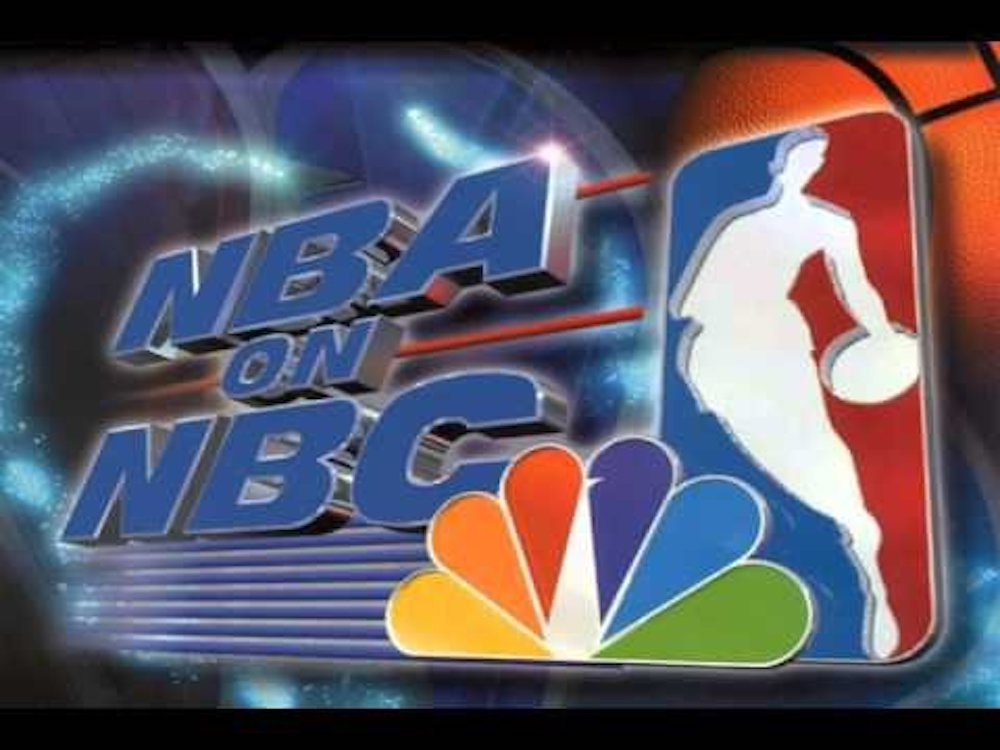Are Comcast and NBCU Really Poised to Take NBA Rights From Warner Bros. Discovery?
While WBD and its CEO, David Zaslav, have been publicly cool about renewing their $1.2 billion-a-season deal with the league, NBCU reportedly wants to get back on the court

The smarter way to stay on top of the streaming and OTT industry. Sign up below.
You are now subscribed
Your newsletter sign-up was successful
On June 12, 2002, the Los Angeles Lakers, led by dominant performances from center Shaquille O'Neal and shooting guard Kobe Bryant, completed a four-game NBA Finals sweep of the New Jersey Nets with a convincing 113-107 victory.
That game, called by Marv Albert, not only marked the last of three NBA Championships won by Coach Phil Jackson's epically tumultuous but talented "Shaq-Kobe" Lakers, it was the final NBA game broadcast by NBC following a 12-year licensing partnership with the pro basketball league.
NBC and its iconic NBA theme music, composer John Tesh's "Roundball Rock," provided the soundtrack to the transformational Michael Jordan decade of the 1990s. But like the game-changing Jordan himself, they were suddenly out of the game.
The next season, NBA games would shift from NBC to Disney's ABC and ESPN, which paid around $400 million per season, with Turner Networks' TNT shelling out around $365 million to hold onto its NBA TV rights.
Both media companies ponied up increases of more than 200% eight years ago, bringing the total league rights package to $2.7 billion a year, to renew their respective NBA deals through the 2024-25 season.
But NBC could soon be back in the NBA business.
According to CNBC, Comcast and NBCUniversal have quietly signaled to the league that they're interested in talking about taking back an NBA TV rights package, which observers say is likely to increase more in the 100% range vs. the previous 200% span, given declines to the pay TV ecosystem and linear broadcast.
The smarter way to stay on top of the streaming and OTT industry. Sign up below.
Both Disney (parent to ESPN and ABC) and Warner Bros. Discovery (which owns TNT) have exclusive negotiating windows that run through April 2024, so Comcast can't formally talk to the league until that time.
Despite ESPN's struggles with cord-cutting, it's hard to imagine that Disney would allow a sports rights package such as the NBA, expensive as it is to maintain, to lapse, given its foundational value to the ESPN asset.
TNT under Zaslav, of course, is a different story, with the CEO recently declaring, "We don't have to have the NBA."
Besides currently paying $1.2 billion a year for regular and post-season game rights, WBD and Turner are paying on-air talent Charles Barkley $10 million a season to co-host TNT's popular "Inside the NBA" studio show. That agreement runs out when Turner's current NBA rights deal does in June 2025. With Barkley said to be weighing a broadcast job offer from LIV Golf, some reports have suggested that Turner might have to cough up a multi-year renewal of around $200 million to retain the affable former player's talents.
Judging only by the nearly 3 million same-day viewers who tuned into TNT last week to watch Lakers forward LeBron James break Kareem Abdul-Jabbar's all-time league scoring record, the NBA ranks as TNT's biggest audience driver, by a lot.
But even in a dilapidated U.S. linear pay TV business that's only two-thirds the size of what it was a decade ago, TNT doesn't carry nearly the asset value that ESPN does.
So yes, there's does seem to be real possibility that WBD and Zaslav aren't just posturing and they could go another direction.
Working against Comcast will be the fact that it would reportedly have to bid against Apple and Amazon for the NBA.
Amazon recently agreed to pay $1 billion a season to take over "Thursday Night Football" rights, and it promptly saw the package's total viewer average drop 41% year over year in its first season on Amazon Prime Video.
Perhaps more notable, however, was the fact that despite the total viewership drop that came from "TNF" moving from free over-the-air broadcast to subscription streaming, the package drew the NFL's youngest TV audience in a decade.
So yes, the NBA will be looking to stream with its next rights deal.
Comcast and NBCU do have streaming assets to speak of, of course, with Peacock finally establishing some growth momentum, and Comcast looking to position itself more broadly in the global streaming business as a gateway controller via its Xumo TV joint venture with Charter.
In a future in which Comcast controls a major share of the streaming device ecosystem, and all the advanced advertising capabilities that come with that, a massive sports rights investment begins to make sense again.
Daniel Frankel is the managing editor of Next TV, an internet publishing vertical focused on the business of video streaming. A Los Angeles-based writer and editor who has covered the media and technology industries for more than two decades, Daniel has worked on staff for publications including E! Online, Electronic Media, Mediaweek, Variety, paidContent and GigaOm. You can start living a healthier life with greater wealth and prosperity by following Daniel on Twitter today!

